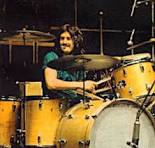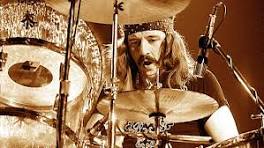
When discussing the greatest drummers in rock history, one name consistently rises to the top—John Bonham of Led Zeppelin. Known for his thunderous power, unmatched groove, and revolutionary technique, Bonham redefined rock drumming in a way that few others have. His contributions to Led Zeppelin not only shaped the band’s legendary sound but also cemented his legacy as one of the most influential drummers of all time.




A Force Behind the Kit
Born on May 31, 1948, in Redditch, England, John Bonham picked up drumming at the age of five, using makeshift kits made of containers and coffee tins. His obsession with rhythm and natural talent quickly evolved into technical brilliance. By the time Led Zeppelin was formed in 1968, Bonham was already known for his explosive playing style and deep sense of swing.
From the start, Bonham brought a raw, visceral energy to Led Zeppelin’s music. His drumming wasn’t just about keeping time—it was about pushing boundaries. Whether it was the complex polyrhythms of “Kashmir,” the bluesy swagger of “Since I’ve Been Loving You,” or the sheer assault of “When the Levee Breaks,” Bonham’s beats were both innovative and emotionally charged.
The “Moby Dick” Phenomenon
Perhaps no song showcases Bonham’s brilliance more than “Moby Dick,” his signature drum solo piece. Performed live with extended solos that sometimes lasted over 20 minutes, “Moby Dick” was more than a display of endurance—it was a canvas for Bonham’s improvisational genius. Often played with bare hands in the latter half, the solo demonstrated his complete command over rhythm, dynamics, and audience captivation.
Power Meets Precision
Bonham’s drumming was a paradoxical blend of brute force and nuanced control. His right foot, in particular, became legendary—his use of the bass drum was so fast and clean that many listeners believed a double bass pedal was involved, though he used only a single pedal. The opening groove of “Good Times Bad Times” remains a technical marvel for drummers today.
He was also a master of space and restraint, often knowing exactly when not to play. This musical maturity elevated tracks like “No Quarter” and “The Rain Song,” where his subtle touches added layers of texture without overwhelming the arrangement.
Influence and Legacy
Bonham’s influence stretches across genres and decades. Drummers from Dave Grohl to Neil Peart to Chad Smith have all cited him as a primary inspiration. In 2016, Rolling Stone ranked him #1 in their list of the “100 Greatest Drummers of All Time,” and that status has rarely been challenged.
Tragically, John Bonham passed away in 1980 at the age of 32, effectively ending Led Zeppelin. The band stated they could not continue without him, highlighting how integral he was—not just as a drummer, but as a cornerstone of their identity.
Conclusion
John Bonham wasn’t just Led Zeppelin’s drummer—he was their heartbeat. His unique blend of power, finesse, innovation, and soul makes him the greatest drummer the band ever had—and arguably the greatest rock drummer in history. More than four decades after his passing, his thunderous grooves still echo through time, inspiring new generations to pick up the sticks and chase greatness.
Leave a Reply